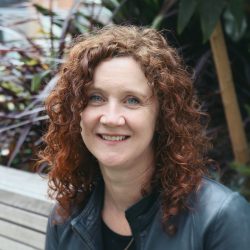The People and Environment Program focuses on urban human-environment relationships, how these are understood, and their impacts on people and sustainability. In particular it seeks to develop, sustain, and promote impactful research on the complexities of achieving the goals of sustainability and human flourishing in cities. This interest encapsulates urban greening, placemaking, consumption, and settler-colonial studies, amongst a range of other interests.
People and Environment takes a broad definition of what environment(s) and associated representations encompass, including ecosystems, air, soil, infrastructures, technologies, water, waste and fire. People and Environment will seek to strengthen the research capacity for exploring these topics from an environmentally-engaged social science perspective.
The People and Environment Program creates a dedicated hub for research and engagement on the relations and interactions that constitute the urban. As well as an emphasis on relations, People and Environment will encourage and draw on a range of theories and approaches that give light to novel perspectives on urban environmental issues, to understand and document human-nonhuman interactions over space and time.
Through a focus on the diversity of ‘more-than-human’ dimensions (both living and non-living) that are enrolled in the production of urban places, People and Environment brings together multiple disciplines interested in these topics, including planning, urban design, geography, the humanities, environmental studies, and ecology.
Aims
- Connect People and Environment with a growing national and international research agenda on human-environment relations in a range of disciplines including planning, geography and environmental studies
- Develop theoretically informed yet empirically grounded applied research, with a key objective to translate new theoretical insights on changing urban human-environment relations into practical solutions, and think through the governance and policy implications for urban and urbanising environments
- Provide an opportunity to connect current and emerging activity into a coherent form that would enable interdisciplinary cross-fertilisation, mutually beneficial sharing and growing of resources and knowledge across research, community, industry and government
Acknowledgement of Country
In the People and Environment Program, our focus is on human-nature relationships, how these are understood, and their impacts on biodiversity, people and sustainability. As scholars and educators, we commit to learn from and acknowledge First Nations ontologies and relational theories as the original scholars and educators of people-place relations.
We respectfully acknowledge that we conduct much of our research and teaching on Boon wurrung and Woiwurrung land, as well as other places sustained by people-place relations over millennia, and that sovereignty over these lands and waters was never ceded. We are deeply thankful for First Nations peoples’ care of Country which has created the rich and unique biodiversity of the places we are privileged to be part of and that we also commit to care for.
We recognise the uniqueness of the biodiversity, other non-humans and social-ecological systems that were flourishing before European invasion, including those that have been lost, and those that continue to thrive. Our goal is to collectively work towards a healing of human-nature relations to sustain people and places through everyday urban practices and care for Country.
Projects
Key People
Lead researchers
Program Researchers
- Bhavna Middha David Kelly Ferne Edwards Helen Corney Joe Hurley Kevin Bardosh Laura Mumaw Leila Farahani Marco Amati Nooshin Torabi Sarah Robertson
Higher Degree Research Students
- Alex Faustino Florence Damiens Jane Daly Margareta Windisch Sri Pandangwati Tamzin Rollason











